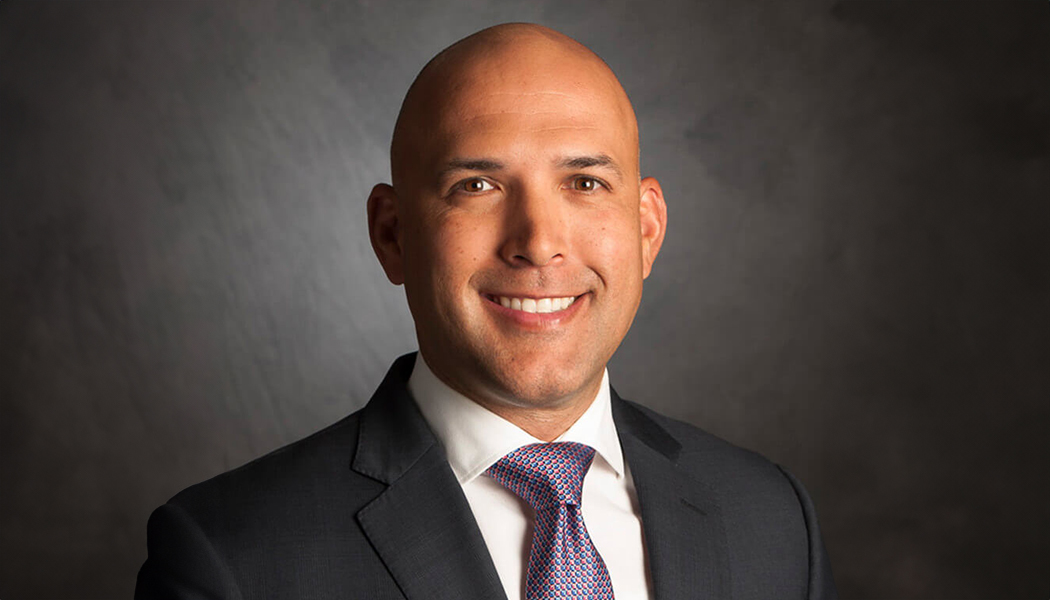Brian Cano: Championing High-Stakes Defense for Texas Businesses.
With over 20 years of experience in Texas’ court rooms, Brian Cano has become a trusted advisor in handling some of the most complex and high-stakes litigation disputes. Known for his proactive, strategic approach to litigation, Brian offers unique insights into managing multifaceted cases, particularly in industries such as trucking and construction. From high-risk, large-dollar cases to wrongful death and class actions, Brian’s focus on clear communication, team building, and thorough preparation has consistently led to favorable outcomes for his clients. In this interview, Brian shares his perspectives on the evolution of his practice, key challenges in defending clients, and his commitment to achieving strategic, business-oriented solutions.

Brian G. Cano - Fee, Smith & Sharp, LLP Managing Partner – Houston
With 20 years of litigation experience in Texas, what motivated you to pursue a career in law, and how has your approach to litigation evolved over the years?
I was drawn to law by a deep-seated interest in both justice and advocacy. Early on, I recognized that a skilled attorney is, in many ways, a trusted advisor navigating complex situations whose impact can be life-changing for all parties involved. This perspective has guided my approach to litigation in a strategic and proactive way, always identifying each case's unique context, anticipating opposing arguments, and building a defense tailored to both legal precedent and the specific facts at hand. Integrating client needs and adapting to the case at hand has allowed me to consistently secure favorable outcomes and maintain strong relationships with my clients.
You’ve handled high-stakes litigation across various industries. What are some common challenges you face when defending clients in complex cases, particularly in the trucking and construction sectors?
Navigating multifaceted regulations and standards unique to each industry, and understanding how they intersect within a complex litigated matter, will always be one of the largest challenges in any high-stakes dispute. Trucking cases often involve extensive federal and state regulations, jurisdictional complexities, and specialized insurance policies. These cases require detailed investigations that include black box data, cargo and load issues, and preservation of evidence, as well as examining driver qualifications, compliance, company practices, and maintenance records, to name a few critical challenges.
Meanwhile, construction cases require an in-depth understanding of safety standards, liability law regarding contractors and subcontractors, and accepted engineering principles within the industry and jurisdiction. Coordinating with industry experts and managing the vast amounts of documentation typical in these cases also demands precision and effective organization as a foundational approach to the case. My experience has honed my ability to synthesize this information into a cohesive defense, addressing both technical details and legal arguments in a streamlined and effective manner. No matter how complex a case, what every case requires is a solid team. Skill in handling and managing these high-stakes cases is only as good as the energy and time spent on building a team that can help implement this approach for my clients to achieve their goals.
Can you share insights into your strategy for managing high-risk, large-dollar cases, and how you ensure effective communication with your clients throughout the process?
High-risk cases start with a thorough risk assessment, identifying the strengths and vulnerabilities of all parties involved. From there, I establish a fluid plan with multiple contingency options, should the case take unexpected turns. I prioritize open communication with clients, ensuring they are updated at each major milestone so that they understand the implications of the decisions they make. This approach not only helps mitigate risk but also ensures clients are informed and educated about the direction of their case. It is my duty to provide an honest, straightforward assessment of the strengths and vulnerabilities my client’s case, even if those assessments are not always the most popular. Clients hire me to be upfront with them about the risks associated with those "bet the company" cases, and I do not shy away from that responsibility, whether it is popular or not.
In your experience, what factors contribute to successful negotiations in high-exposure litigation, and how do you balance aggressive defense with the need for resolution?
Successful negotiations require a clear understanding of the case's value and potential exposure, paired with a willingness to adapt as evidence evolves. In high-exposure cases, a strong defensive stance can signal strength, while a readiness to negotiate demonstrates pragmatism. I aim to strike a balance by thoroughly preparing for trial and engaging in evidence-backed negotiations. This dual approach often places clients in an advantageous position, allowing us to resolve matters favorably while minimizing potential risks should we go to trial.
Your case Gresham v. Fertitta Hospitality LLC resulted in a defense verdict for a Galveston, Texas hotel. What key lessons did you learn from that case that could apply to similar future disputes?
In Gresham v. Fertitta Hospitality LLC, a critical takeaway was the importance of a narrative that resonated with the jury, alongside a rigorous, fact-based defense. We focused on illustrating our client’s adherence to safety standards and commitment to their guests’ well-being. This case underscored the value of preparing for every angle, from factual evidence to how we presented our arguments. This experience simply reinforced my belief that a well-prepared, compelling story is as essential as a solid legal argument.
How do you assess legal risk across a client’s business at the outset of an engagement, and why is this risk management mindset important?
Assessing legal risk involves examining the client’s operations, industry-specific exposures, and any regulatory obligations they face. At the outset, I work with clients to review their policies and procedures, identifying potential vulnerabilities and areas for improvement. This risk management mindset is vital because it helps prevent issues before they escalate, creating a more stable foundation for long-term success. By proactively addressing these risks, we can often avoid costly litigation or mitigate potential impacts should litigation arise.
Given your extensive experience with various legal matters, including wrongful death and class actions, how do you prioritize the unique needs of each client while also considering the broader implications of each case?
Every client’s case has distinct aspects that require personalized attention. I begin by understanding their objectives and concerns, then craft a legal strategy that aligns with those goals. For complex cases with potential implications beyond the immediate outcome, I assess how our approach may impact broader industry standards or precedents. Balancing client needs with these wider considerations ensures that we provide not only effective representation but also strategic foresight.
Community engagement appears to be important to you. How do your life experiences and community ties influence your approach to problem-solving for your clients?
My community involvement has taught me the value of understanding different perspectives and fostering connections based on trust and empathy. These values translate directly to my practice, where I strive to approach each case with a client-centered mind set. My background has instilled a sense of responsibility and commitment, qualities that help me approach problem-solving with a focus on practical, impactful solutions that genuinely serve my clients' best interests.
About Brian
Brian Cano represents companies and individuals in high-exposure disputes throughout Texas in both state and federal courts. Whether he is zealously advocating for clients in high-stakes litigation or engaging in thoughtful negotiations, Brian seeks efficient, business-oriented solutions to client challenges.
With offices in Dallas, Austin and Houston, Fee, Smith & Sharp, LLP and Brian Cano have Texas covered.
Contact:
Brian G. Cano
Fee, Smith & Sharp, LLP
Managing Partner – Houston
2777 Allen Parkway, Suite 800, Houston, Texas 77019
Tel: 713-362-8313
Fax: 713-362-8302
www.feesmith.com


















